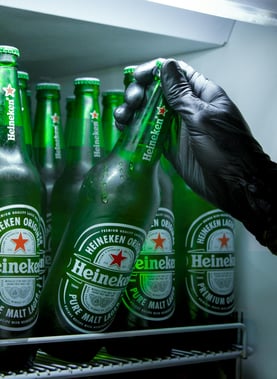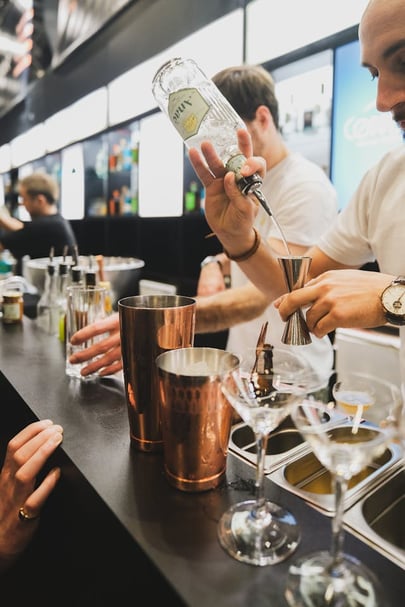Proper inventory management in your bar's coolers and beer fridges is crucial for preventing theft, ensuring customer satisfaction, and maintaining cleanliness. The Scannabar inventory app can help you achieve this quickly and optimally.
Preventing Theft With Regular Inventory Checks
Frequent inventory checks are your first line of defense against theft. By regularly counting the stock in your coolers and beer fridges, you can quickly spot discrepancies that may indicate internal theft or supplier issues. Consistently monitoring inventory levels helps ensure that every item is accounted for, reducing the likelihood of theft.
In addition to preventing theft, regular inventory checks help you identify patterns and trends, allowing you to make informed decisions about ordering and stocking. This proactive approach not only safeguards your assets but also contributes to overall operational efficiency.
Ensuring Your Coolers and Beer Fridges Are Fully Stocked
A fully stocked cooler or beer fridge is essential for maintaining customer satisfaction. When customers have a variety of options to choose from, they are more likely to find something they enjoy, leading to increased sales and repeat business. Regular inventory checks ensure that you are always aware of what needs to be restocked, preventing the disappointment of running out of popular items.
Moreover, keeping your coolers and beer fridges well-stocked helps you manage your supply chain more effectively. It allows you to place timely orders, avoid overstocking, and reduce the risk of spoilage or expired products, ultimately saving you money.
Maintaining Cleanliness and Hygiene Standards
Cleanliness and hygiene are paramount in the hospitality industry. Regular inventory checks provide an excellent opportunity to inspect your coolers and beer fridges for cleanliness. A clean and well-organized fridge not only looks professional but also ensures that your products remain in optimal condition.
By incorporating cleanliness checks into your inventory routine, you can maintain high hygiene standards, comply with health regulations, and provide a safe environment for your customers. This practice also extends the lifespan of your refrigeration equipment, reducing maintenance costs and downtime.
How Scannabar Streamlines Your Inventory Process
The Scannabar inventory app is a game-changer for bar owners looking to streamline their inventory process. This app allows you to quickly and accurately count stock using barcode scanning technology, significantly reducing the time and effort required for manual counts. With Scannabar, you can easily track inventory levels, manage orders, and generate detailed reports, all from a single platform.
Scannabar's user-friendly interface makes it easy for your staff to learn and use, ensuring that inventory checks are done consistently and correctly. By automating many aspects of the inventory process, Scannabar frees up your time to focus on other important aspects of running your bar.
Boosting Efficiency and Accuracy with Scannabar
Efficiency and accuracy are crucial for effective inventory management, and Scannabar excels in both areas. The app's precise scanning technology minimizes human error, ensuring that your inventory counts are always accurate. This accuracy is vital for making informed decisions about ordering and stocking, ultimately leading to better financial management.
In addition to accuracy, Scannabar boosts efficiency by streamlining the entire inventory process. Automated reports and real-time data updates provide you with valuable insights into your inventory trends, helping you optimize stock levels and reduce waste. With Scannabar, you can achieve a higher level of operational efficiency, allowing you to focus on delivering an exceptional customer experience.


 Theft reduction policies and procedures are no good unless they are strictly enforced. Employees must be made clearly aware of the dire consequences of flouting house rules. There can be no gray areas. New members of staff should be asked to sign a confirmation that they have read the rules and fully understand the implications.
Theft reduction policies and procedures are no good unless they are strictly enforced. Employees must be made clearly aware of the dire consequences of flouting house rules. There can be no gray areas. New members of staff should be asked to sign a confirmation that they have read the rules and fully understand the implications.

